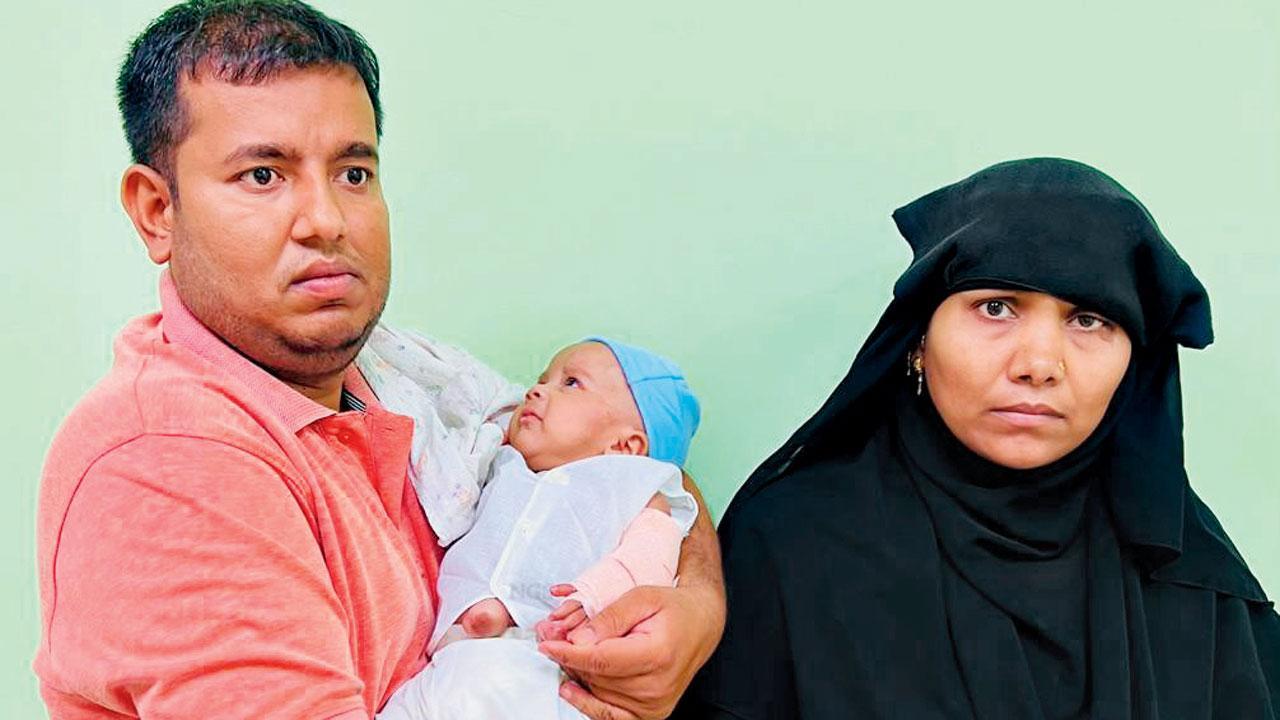
In Uttar Pradesh’s Gayaghat village, located in the Siddharth Nagar district, it is common for people to cross over to the Nepal border through the Kakrahwa border, covering a distance of about 40 km. This was recounted by Abdul Awwala, a farmer in the village, as he recalled taking his newborn daughter to a hospital in Nepal for treatment after noticing an abnormality on her hand in early January.
Doctors there had suspected gangrene and mentioned the possibility of amputation, prompting Abdul to seek further advice. After visiting several facilities in Gorakhpur without a favourable outcome, he consulted his family doctor, who recommended Mumbai’s Wadia Hospital. Three weeks after her birth, the family brought the girl for treatment to Mumbai. Abdul said, “I trusted the doctor back home and took her to the hospital he suggested.” The stakes were high as the family had a history of losing two other newborns.
Essentially, the child, to be named Tamanna, had developed severe cellulitis—a common bacterial skin infection causing redness, swelling, and pain—in her left forearm at birth. Dr Nilesh Satbhai, consultant plastic, hand, and reconstructive microsurgeon at Bai Jerbai Wadia Hospital for Children, explained that cellulitis can rapidly worsen if left untreated, potentially leading to life-threatening conditions like necrotising fasciitis, requiring amputation.
The doctors performed a series of procedures over 40 days, including maintaining a flap—similar to a patch of skin—over the wounds for three weeks before dividing and relocating it to cover the wounds. The entire procedure concluded in March. Abdul, whose monthly income is Rs 12,000, had to raise funds with the help of relatives to cover the approximately one lakh rupees cost of the treatment. He mentioned the financial strain but emphasised the relief of his daughter’s safety, saying, “We have had no income during our stay here at my sister’s home. But my daughter is safe.”
#farmers #trek #Nepal #Mumbai #save #daughters #life